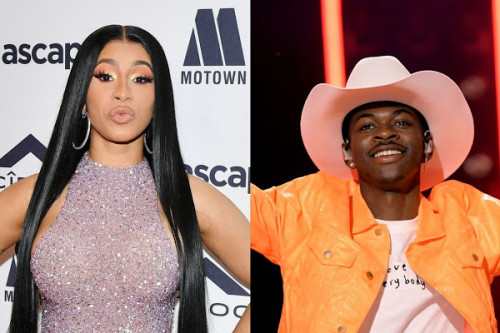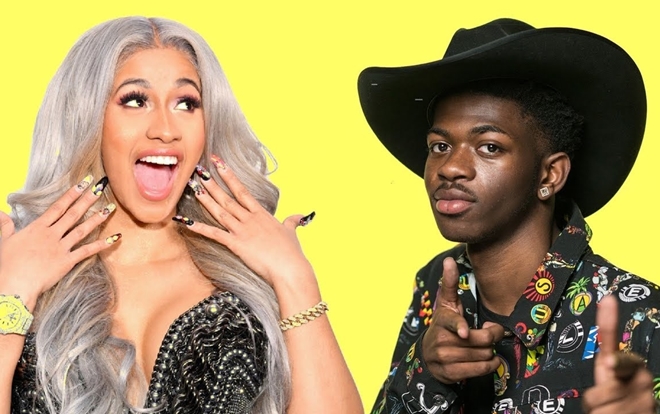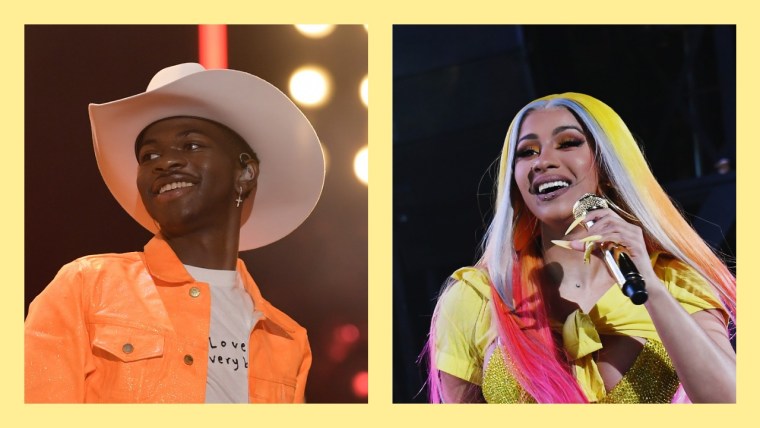Lil Nas X and Cardi B, two of hip-hop’s most celebrated stars, are now at the center of a legal controversy over their collaboration, “Rodeo.” A producer named Brandon Lee has filed a lawsuit, accusing the artists of lifting significant portions of his song without permission. The case could escalate into a major legal battle, with implications for both artists and the music industry at large.
Here's ads banner inside a post
The Accusation
Brandon Lee claims that “Rodeo,” featured on Lil Nas X’s debut EP 7 and performed alongside Cardi B, unlawfully sampled elements of his original work. According to Lee, his song titled “gwenXdonlee4-142” was incorporated into another track, “Broad Day,” performed by PuertoReefa and Sakrite Duexe. It’s from “Broad Day,” Lee alleges, that Lil Nas X and Cardi B’s “Rodeo” borrows key musical elements.
In his lawsuit, Lee contends that “Rodeo” uses a similar structure and musical components to his original creation, specifically citing the following similarities:
- A 4-measure chord progression (E, F, G, F, E)
- Identical tempo, drumbeats, and chord patterns
- Shared instrumentation, including guitar and wind instruments
The Tracks Compared
When comparing “Rodeo” and “Broad Day,” listeners have noted sonic resemblances that bolster Lee’s claim. Both tracks feature an eerie, Western-inspired vibe, driven by guitar riffs and atmospheric instrumentation. Lee alleges that these similarities are too precise to be coincidental.
Here's ads banner inside a post
The producer insists that his work was publicly available within Atlanta’s hip-hop scene, suggesting that Lil Nas X or his team may have encountered it there. However, he has not provided specific evidence to show how the artists or their collaborators might have accessed “Broad Day.”
Who’s Being Sued?
Brandon Lee’s lawsuit doesn’t stop at Lil Nas X and Cardi B. The producer is also targeting:
- Sony Music Entertainment: The parent company overseeing Columbia Records, to which Lil Nas X is signed.
- Columbia Records: The label responsible for distributing “Rodeo.”
- Klenord Raphael: Cardi B’s former manager, who Lee alleges was involved in the song’s production.
This multifaceted lawsuit could complicate the case, as it involves multiple entities and individuals across the music industry.
Here's ads banner inside a post

Legal Precedents and Challenges
Cases like this are not uncommon in the music industry. Copyright infringement lawsuits have plagued some of the biggest names in music, from Pharrell and Robin Thicke’s high-profile loss over “Blurred Lines” to more recent cases involving artists like Ed Sheeran.
To win his case, Lee must prove that:
- Access: The defendants had access to his original work.
- Substantial Similarity: The two songs are substantially similar in composition.
While proving similarity can often be straightforward using expert testimony and musical analysis, demonstrating access is typically more challenging. Lee’s claim that “Broad Day” was publicly available in Atlanta might not be enough unless he can connect the song directly to Lil Nas X, Cardi B, or their production teams.

Potential Outcomes
If Lee’s claims are upheld, the repercussions could be significant. The producer might be entitled to monetary compensation, royalties, or even co-writing credits on “Rodeo.” However, if the court finds the similarities to be generic or coincidental, the case could be dismissed.
For Lil Nas X and Cardi B, the lawsuit could impact their reputations, even if they are ultimately cleared of wrongdoing. Both artists have built careers on innovation and originality, making these accusations particularly damaging in the public eye.
Industry Implications
This case once again highlights the murky waters of copyright law in the music industry. Sampling and inspiration are common practices, but when do they cross the line into infringement? As digital platforms make music more accessible, the potential for unintentional overlap increases, raising questions about how intellectual property is protected and enforced.
The lawsuit also underscores the importance of transparency in production credits. Many artists rely on large teams of producers, songwriters, and engineers, which can blur the lines of accountability when disputes arise.

Fan Reactions and Public Perception
Fans of both artists have taken to social media to voice their opinions on the lawsuit. While some defend Lil Nas X and Cardi B, arguing that the claims are baseless, others believe that the similarities between the tracks warrant closer scrutiny.
“Everyone takes inspiration from somewhere, but if it’s too similar, credit needs to be given,” one fan commented. Others have questioned Lee’s motivations, accusing him of seeking clout or a quick payday.
What’s Next?
As the lawsuit moves forward, Lil Nas X, Cardi B, and their legal teams will likely push back against the allegations. The case’s outcome will depend on the evidence presented by both sides and whether the court finds sufficient grounds for infringement.
For now, the controversy adds another layer of intrigue to the already vibrant careers of both artists. Lil Nas X continues to break boundaries in music and culture, while Cardi B remains a dominant force in hip-hop. Whether this lawsuit will have lasting repercussions for either artist remains to be seen.

The lawsuit over “Rodeo” serves as a reminder of the complexities and challenges in protecting artistic creations. As the music industry continues to evolve, cases like this will likely become more frequent, raising critical questions about originality, influence, and the boundaries of inspiration.
What do you think about the allegations against Lil Nas X and Cardi B? Are the similarities coincidental, or does Brandon Lee have a valid claim? Let us know your thoughts in the comments, and stay tuned for updates on this developing story.


